Kyrgyzstan Populist On Course For Victory In Presidential Vote
Populist Sadyr Japarov claimed victory in Kyrgyzstan's presidential elections Sunday and pledged to weed out graft in the Central Asian country after a political crisis put him on the path to power.
Results published by the ex-Soviet country's Central Election Commission (CEC) showed Japarov with close to 80 percent of the vote after an automated count.
A referendum held in parallel showed the public strongly preferring presidential rule, which would grant Japarov sweeping powers when a new constitution is put to the people later this year.
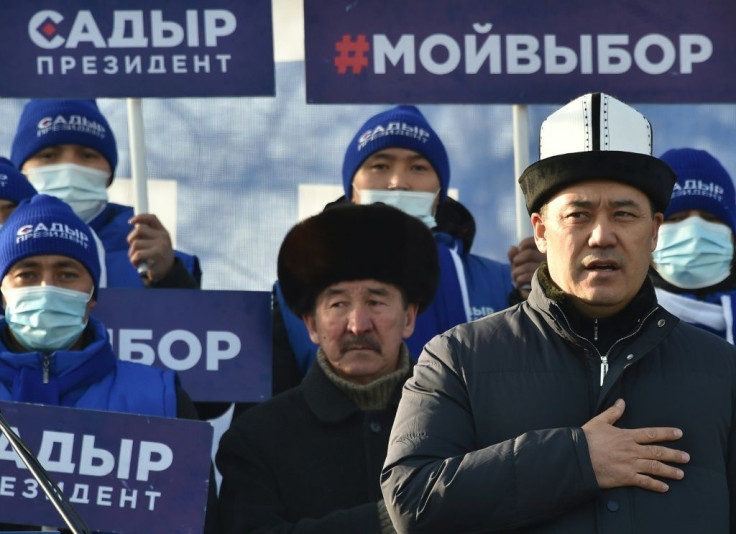
Speaking at his campaign headquarters, Japarov promised to end corruption that he said had "taken root in practically all areas of life" in the impoverished republic of 6.5 million people.
"We won't repeat the mistakes of previous governments," he vowed.
The vote for presidential rule spells the end of a political system adopted a decade ago to tame authoritarianism, after two successive strongman presidents were ejected from power during street protests in 2005 and 2010.
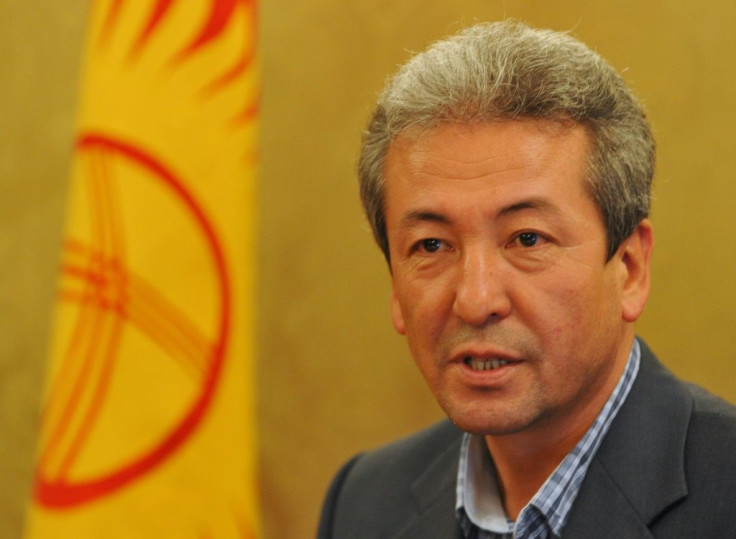
Just over 10 percent supported a parliamentary system.
Japarov said Sunday that he expected a referendum on the constitution and fresh parliamentary elections to take place before June.
The 52-year-old was serving jail time on hostage-taking charges until mass protests in October saw him freed by supporters and propelled to the top of the political pyramid.
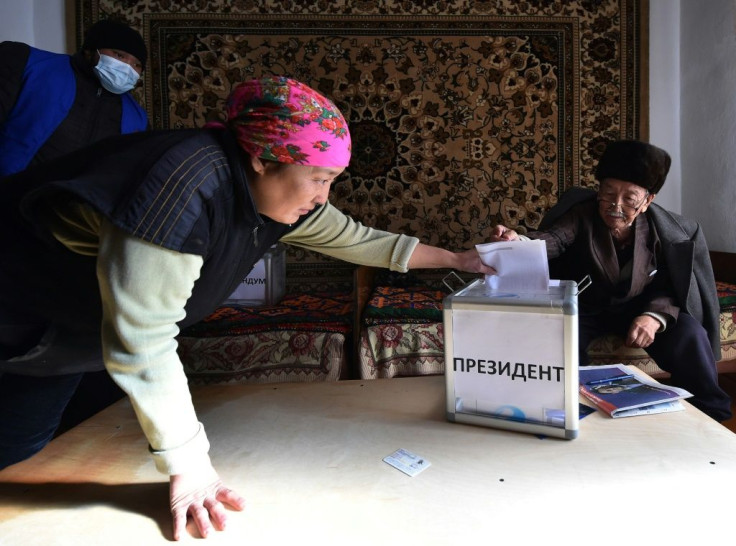
CEC data Sunday showed his closest competitor, nationalist Adakhan Madumarov, trailing with less than 7 percent.
But turnout on the chilly day was just over 39 percent, it said.
Japarov's journey from prison to the presidency is an example of the dramatic changes in political fortunes in the Central Asian country that is both more unpredictable and pluralistic than its authoritarian neighbours.
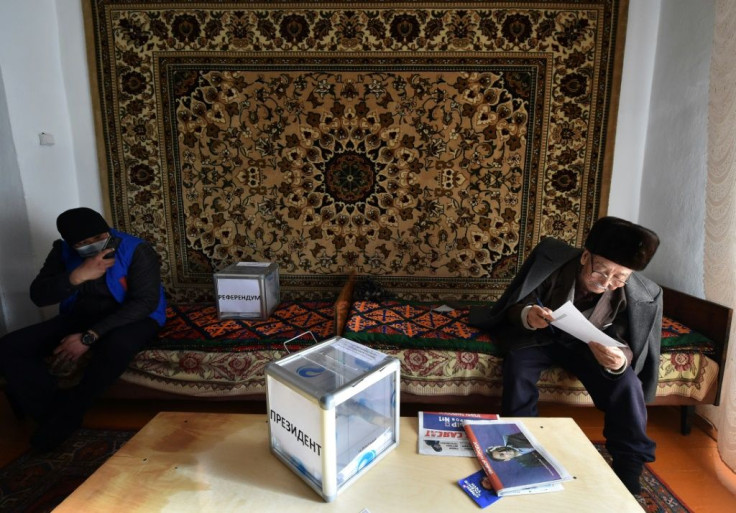
While in jail, Japarov lost both his parents and a son -- sacrifices that many voters referenced when explaining their support for him.
Gulbara Shamshiyeva, a 32-year-old housewife, told AFP: "My hopes are tied up with Sadyr."
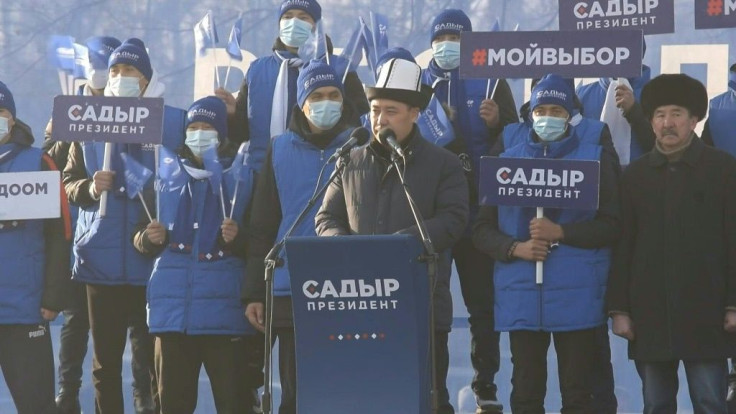
"I believe he will develop our country and make it prosperous," she said, standing on the square in Bishkek that witnessed clashes between police and protesters in October.
Critics of Japarov, who became acting leader during the unrest, fear his victory and the vote for presidential rule could tip Kyrgyzstan towards the authoritarianism dominant in ex-Soviet Central Asia.
He himself has projected an image as an uncompromising opponent of organised crime and systemic corruption, lashing out at critics who speculated that criminal networks helped his rise to power.
But he struck a unifying tone in his last campaign appearance on Friday in Bishkek.
"Let us come together... treat each other with understanding and respect. We are one country, one people," he told crowds of several thousand people.
With a threadbare economy battered by the coronavirus pandemic, Kyrgyzstan's next leader is likely to be even more dependent on Russia -- a destination for hundreds of thousands of Kyrgyz migrants -- and neighbouring economic giant China.
Russian President Vladimir Putin described the overthrow of the previous government as a "misfortune" and also chided Kyrgyz politicians for attempting to imitate Western democracies.
Beijing's ambassador met with Kyrgyz officials several times last year to discuss protection for Chinese businesses, some of which were attacked during the unrest.
The crisis that allowed for Japarov's overnight rehabilitation and rise to power was sparked by vote-buying campaigns favouring former president Sooronbay Jeenbekov.
Jeenbekov resigned at the insistence of Japarov's supporters and after agreeing to sign off on Japarov's election as prime minister by parliament.
Japarov also became acting president following the resignation during the political chaos but he stepped down from both roles to compete in the vote.
Yet rivals complained that his campaign benefited from the resources of the state, where his allies now occupy top posts.
Bekjol Nurmatov, a 77-year-old retiree, accused Japarov of "plunging the people into chaos" last year.
© Copyright AFP {{Year}}. All rights reserved.





















